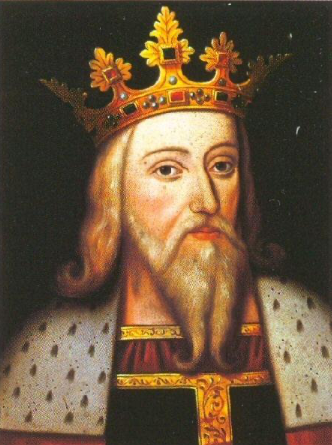.

The House of Lords has its origins in the early medieval period, around the 14th century. During this time, the monarch on the throne was King Edward III of England, who reigned from 1327 to 1377. (Picture credit: Free image from alchetron.com)
IN DECEMBER we noted that opinions about the future of the House of Lords can be sharply divided.
.
There are those who’re in awe of its history & uniqueness. They also (quite reasonably) question what would replace it. Others believe that the House of Lords is an anachronism and should be replaced.
.
Despite these differences, we believe that most people would agree that there needs to be a system of checks & balances available to act as a counterweight to the House of Commons. (This is particularly so when a government has an overwhelming majority & can easily steamroller legislation through.)
.
With all the above in mind, it’s clear that any decision about the future of the House of Lords shouldn’t be based on kneejerk reactions. Indeed, any decision requires deep analysis, thought and debate.
.
To this end, it’d be useful to know what oversight body preceded it (if any) and when & why the House of Lords came into being.
.
To examine this in forensic detail will require a completely new series of historically-based articles – and we hope to do this soon. However, for the purposes of this series, the following brief history lesson will suffice.
.
The House of Lords, the upper chamber of the UK Parliament, was formally established in the early 14th century. Its origins can be traced back to the medieval councils and assemblies that advised the monarch.
.
These assemblies were comprised of nobles, bishops, and other high-ranking officials. The primary role here was to both advise the monarch and provide consent for legislation.
.
Over time, these gatherings evolved into a more structured body with defined powers. Thus, the main role of the House of Lords was to offer counsel to the king and to act as a judicial authority.
.
During its early years, the Lords played a crucial role in the legislative process, reviewing and amending bills proposed by the House of Commons. It also served as the highest court of appeal in the land.
.
The 19th century saw significant reforms which began to shape the House of Lords into its modern form.
.
It was originally dominated by hereditary peers – nobles who inherited their titles and seats from their ancestors. However, reforms in the 20th and 21st centuries introduced life peers, appointed based on merit, and bishops representing the Church of England.
.
Also, the Parliament Act of 1911 marked a pivotal point, reducing the power of the Lords to veto legislation, allowing them only to delay bills.
.
Further reforms in 1958 and 1999 introduced life peers and significantly reduced the number of hereditary peers (although they didn’t eliminate them entirely). These reforms aimed to make the House more reflective of contemporary society while still retaining a connection to its historical roots.
.
A significant milestone in the history of the House of Lords was the inclusion of women. In 1958, with the passing of the Life Peerages Act. Here women were allowed to become life peers and, thus, members of the House of Lords for the first time. This was a transformative step towards gender equality within the British legislative system, marking the beginning of a more inclusive approach to governance.
.
The first woman to join the House of Lords was Baroness Irene Curzon in 1958. She was one of the first life peers appointed following the passage of the Life Peerages Act 1958, which allowed women to be appointed to the House of Lords.
.
• To be continued.
.
• THIS ARTICLE should be read in conjunction with The House Of Lords – Should It Stay Or Should It
































